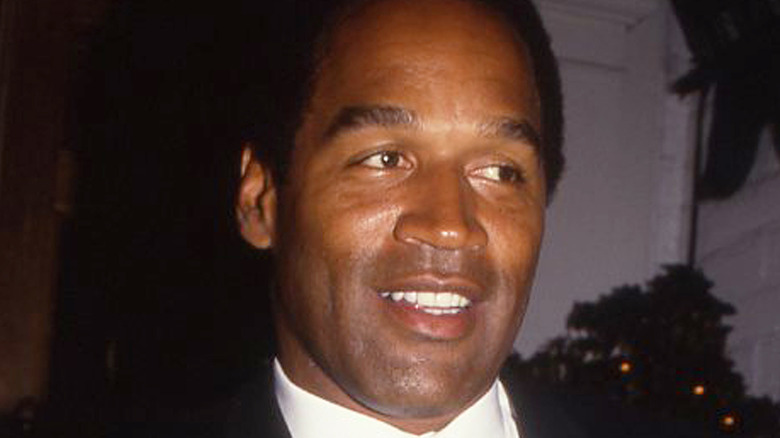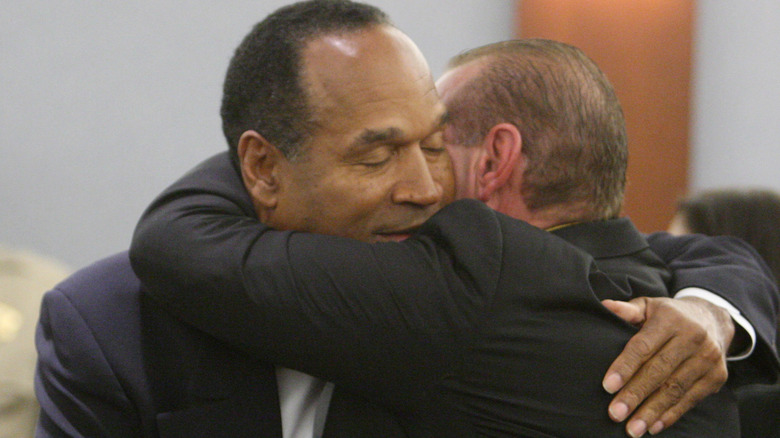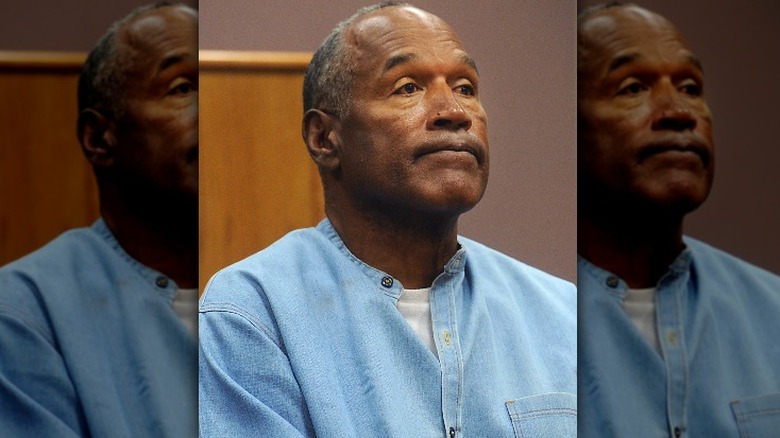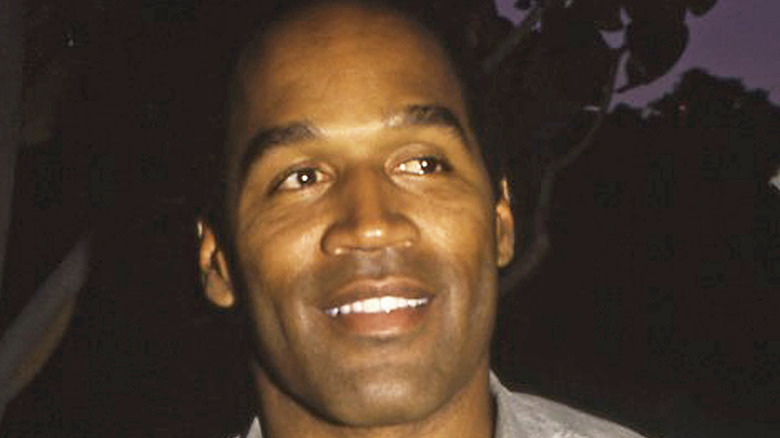The Real Reason O.J. Simpson Was Acquitted Of Murder
We may receive a commission on purchases made from links.
Orenthal James Simpson, who is commonly known as O.J. or "The Juice," was an American football star, broadcaster, and actor. However, he is perhaps best known for the trial and his subsequent acquittal of murder charges for the deaths of his former wife, Nicole Brown Simpson, and her friend Ronald Goldman (per ABC News).
The specific details of whether O.J. Simpson was involved in the deaths of Brown Simpson and Goldman on the evening of June 12, 1994, may never be known. Yet, many people were convinced of Simpson's guilt and were stunned when he was acquitted.
In the decades following the announcement of the verdict, several explanations have been proposed as to why he was acquitted — including the fact that the attorneys, law enforcement officials, and even the judge, made serious mistakes. However, others believe O.J. was acquitted because he was actually innocent of the crime.
A 2012 book titled "O.J. Is Innocent and I Can Prove It," written by private investigator William C. Dear, suggests Nicole and Ron were actually killed by O.J.'s oldest son Jason. In addition, a 2017 miniseries, titled "Is O.J. Innocent? The Missing Evidence," suggests Simpson was wrongly accused and his indictment was based on failings by the Los Angeles Police Department. The miniseries also names Jason as a possible suspect in the murders.
Jurors said prosecutors did not prove their case
As reported by In Touch Weekly, Jason had been convicted of assault with a deadly weapon and was on probation on the evening Nicole Brown Simpson and Ronald Goldman were stabbed to death. Jason's conviction was related to an incident in which he attacked his previous boss with a knife. However, authorities have never named Jason as a suspect or a person of interest in the murders of Nicole Brown Simpson or Ronald Goldman.
Following the announcement of O.J.'s acquittal, several jurors were interviewed and asked why they determined he was not guilty. According to CNN (via Newsweek), juror Brenda Moran said, "In plain English, the glove didn't fit." She also said the prosecution's focus on accusations that Simpson abused his former wife was "a waste of time."
Another juror, David A. Aldana, said the evidence presented against Simpson "just didn't add up," and so was confident in his decision to find the defendant not guilty.
Newsweek reports juror Lionel Cryer said he and the other jurors "felt there were a lot of opportunities for ... contamination of evidence ... " In Cryer's opinion, the evidence presented was "garbage in, garbage out."
It has been suggested that the jury's acquittal of Simpson was racially motivated, as Simpson, as well as nine jurors, were Black. However, Columbia Law School professor, Patricia Williams, argues the verdict had nothing to do with race (per NPR).
Media coverage may have tainted the case
In Professor Williams' opinion, the jurors made their decision based solely on the evidence presented at trial. And, as reported by NPR, Williams said the prosecution simply did not meet the "burden of proof".
University of Virginia's law professor, Alex Johnson, further disputes claims that race was a factor in the jury's verdict. As Simpson was a wealthy celebrity, Johnson said he had essentially distanced himself from a large portion of the Black community. Therefore, it is unlikely that the jurors felt any affinity towards Simpson in that regard (per NPR)
Others have blamed the media's coverage of the case, for influencing the behavior of the participants, and possibly influencing members of the jury. Laurie Levenson, who teaches Criminal Law at Loyola Law School in Los Angeles said (via NPR) that Judge Lance Ito's decision to allow the entire trial to be televised essentially turned the case into a reality TV show. Professor Patricia Williams said the live coverage turned the focus away from the facts of the case and caused an unreasonable distraction.
As reported by ENews, the prosecution has received much of the blame for Simpson's acquittal, as they failed to prove their case beyond a reasonable doubt. However, in her opening statement, Deputy District Attorney Marcia Clark said the "trail of blood from Bundy, through his own Ford Bronco, and into his house in Rockingham" seemed to provide enough evidence for a conviction.
The police were accused of mishandling evidence
ENews reports the collected evidence included a single glove found at the crime scene and a single glove found outside O.J. Simpson's home, which contained a trace of Ron Goldman's DNA. In addition, drops of Nicole Brown Simpson's, Goldman's, and O.J.'s blood were found inside Simpson's Bronco and a sock with drops of O.J.'s and Nicole's blood was also found inside Simpson's bedroom. But, as the trial progressed, it became clear that the blood and DNA evidence were simply not enough to secure a conviction.
As reported by ENews, detective Mark Fuhrman found the bloody glove outside Simpson's home, which appeared to be similar to the glove found at the scene of Nicole Brown and Goldman's murders. However, while testifying, it was revealed that Fuhrman had made a number of racist remarks in the past and had physically assaulted several suspects throughout his career.
The revelation ultimately diminished Fuhrman's reliability as a witness, and as a police officer at the scene. It also brought an important piece of evidence into question. When Simpson tried the glove on in open court, and it appeared that it did not fit, it only created more reasonable doubt.
Simpson's defense team introduced even more reasonable doubt when they presented witnesses who testified that much of the evidence was either overlooked or mishandled. Crime Museum reports law enforcement made a number of mistakes while collecting evidence, which could have led to contamination. Other evidence was lost or even destroyed.



